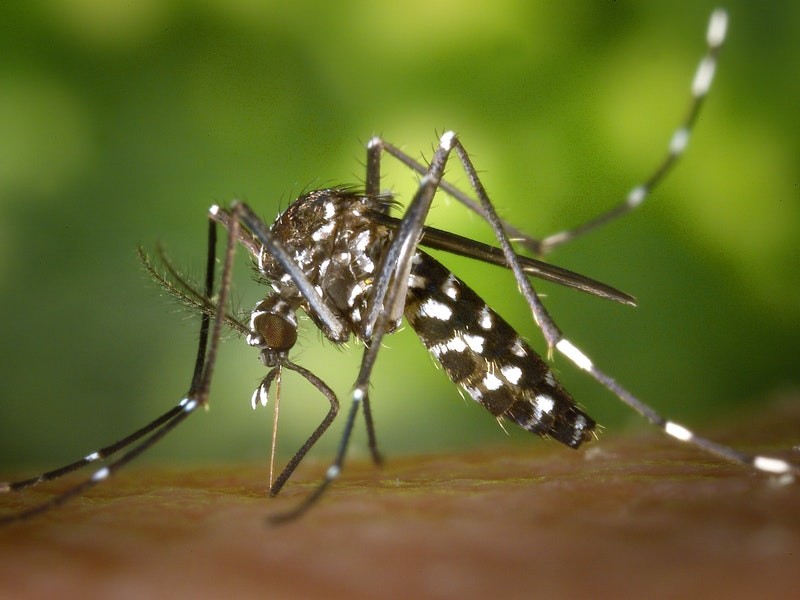For the seventh year in a row, Atlanta lands the number one spot on national pest control leader Orkin’s Top 50 Mosquito Cities List. Coming in second is Los Angeles, making a 10-spot jump from 2019, the second largest on the list behind Memphis’s 16-spot leap. Three new worst cities for mosquitoes broke into the list this year: San Francisco, Birmingham, Ala. and Fort Wayne, Ind.
With much of the country under a shelter-in-place order, backyards will be busier than ever at the outset of mosquito season as residents seek recreation without leaving home. Increased outdoor time may lead to increased experience with these blood-sucking pests. There is no known end date in this fight against coronavirus, which is why Orkin is launching its Donating Blood Should Be Voluntary campaign to support the American Red Cross to help maintain a sufficient blood supply for the weeks and months to come.
“It’s always Orkin’s priority to protect public health, and that starts at home,” said Freeman Elliott, President, Orkin. “A safe, healthy home is more essential than ever, and we want to ensure peace of mind where we can. We’re honored to support saving lives on two fronts – aiding the Red Cross in maintaining our country’s blood supply and protecting people against the public health threats of mosquitoes.”
From April 27 to May 31, 2020, those signing up for mosquito control service with the code REDCROSS will trigger a donation of $25 to the American Red Cross, up to $100,000.
“We are deeply grateful for the support from partners like Orkin who have enabled the American Red Cross to continue to deliver on our lifesaving mission nationwide and help patients in need of blood during these unprecedented times. Thank you for your continued support,” said Kamenna Lee, Vice President, Biomedical Marketing at the American Red Cross.
Orkin’s Top 50 Mosquito Cities list ranks metro areas by the number of mosquito customers served from April 1, 2019 to March 31, 2020. The list includes both residential and commercial treatments.
- Atlanta
- Los Angeles (+10)
- Washington, D.C.
- New York (-2)
- Chicago (-1)
- Dallas-Ft. Worth
- Detroit
- Charlotte, N.C. (+1)
- Philadelphia (-1)
- Miami (+4)
- Raleigh-Durham, N.C. (-1)
- Houston (-7)
- Memphis, Tenn. (+16)
- Richmond, Va. (+2)
- Minneapolis (+12)
- Tampa, Fla. (+2)
- Nashville, Tenn.
- Baltimore (-3)
- Grand Rapids, Mich. (+10)
- Orlando, Fla. (+2)
- Boston (-7)
- Indianapolis (-3)
- Norfolk, Va. (-2)
- Phoenix (-13)
- Cleveland (+8)
- St. Louis (-6)
- Greenville, S.C. (-4)
- Tulsa, Okla. (-2)
- Mobile, Ala. (+7)
- New Orleans (+2)
- Albany, N.Y. (-3)
- Knoxville, Tenn. (+7)
- Lafayette, La. (+1)
- West Palm Beach, Fla. (+8)
- Kansas City, Mo. (-10)
- San Francisco (new to list)
- Burlington, N.Y. (-2)
- Austin
- Oklahoma City (-8)
- Baton Rouge, La. (+7)
- Hartford, Conn. (+3)
- Denver (-18)
- Cincinnati (-3)
- Birmingham, Ala. (new to list)
- Jacksonville, Fla. (+1)
- Savannah, Ga. (-1)
- San Antonio (-6)
- Shreveport, La. (+4)
- Fort Wayne, Ind. (new to list)
- Madison, Wis. (-1)
Mosquitoes typically become active when temperatures are above 68 degrees Fahrenheit overnight, and breeding season can start as early as May and last through September. NOAA’s Climate Prediction Center is forecasting above-average temperatures across the country this spring, as well as above-average precipitation in the central and eastern United States, which can indicate an earlier start to mosquito season.
“Mosquitoes are one of the world’s greatest public health threats,” said Frank Meek, Technical Services Manager, Rollins, Inc., Orkin’s parent company. “While we typically think less about that in the U.S., the current pandemic may cause heightened concern over disease transmission.”
Mosquitoes carry vector-borne diseases such as West Nile virus, Eastern Equine Encephalitis and Zika. These dangers apply to both human and pets.
By reducing or eliminating conditions that attract mosquitoes and wearing insect repellent you help protect yourself from mosquito bites and the risks associated with them. Attractants include:
- Standing water in bird baths, fountains, potted plants, wading pools and other children’s toys
- Debris in gutters that provide moisture and harborage
- Overgrown shrubbery that afford dark, humid resting places
- Torn or missing window and door screens
For more mosquito information and prevention tips, visit Orkin.com.





